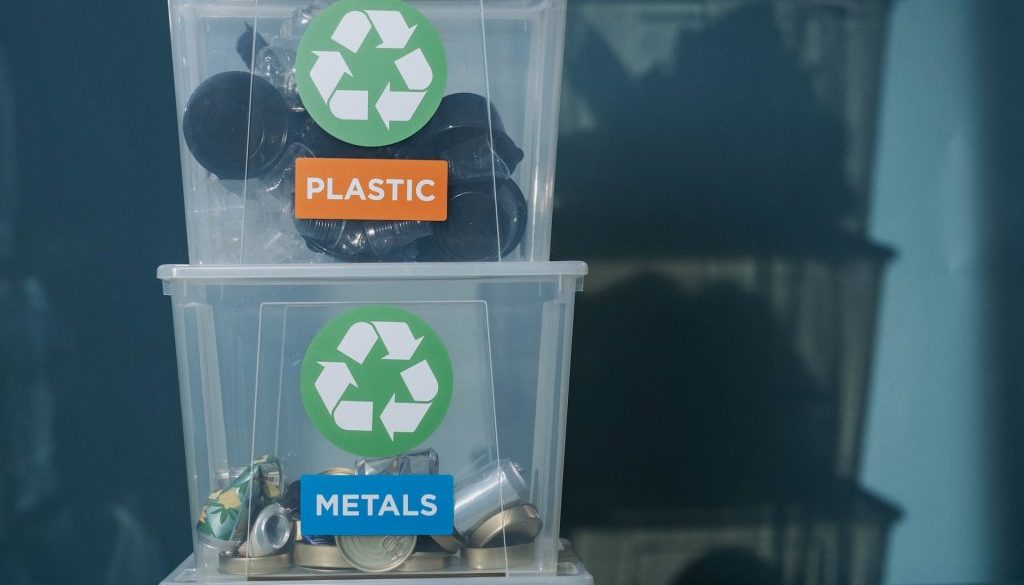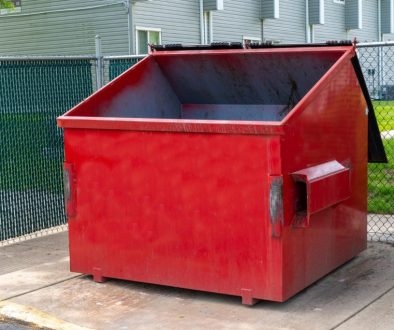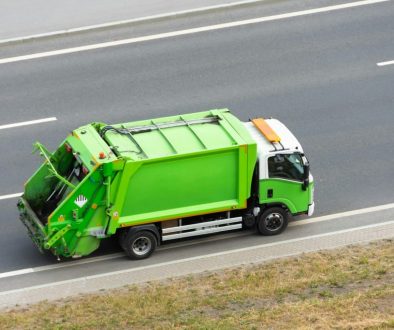Waste disposal refers to the method of getting rid of unwanted materials. This practice is vital because improper waste disposal can lead to environmental and health problems.
In the UK, skip-hire companies provide various waste disposal solutions to help individuals and businesses manage their waste effectively. The three main waste disposal categories are compostable, biodegradable, and recyclable.
Compostable Waste Disposal
Compostable waste refers to organic materials that can decompose into a nutrient-rich soil-like substance called compost. Examples of compostable waste include food scraps, garden (or green) waste, and paper products such as coffee filters and newspapers.
This type of waste comprises organic materials that can decompose naturally. Aside from that, it is usually moist and has a high carbon-to-nitrogen ratio, which is essential for composting. Compostable waste also contains microorganisms that help break down the materials.
Composting Techniques and Process
The composting process involves layering the compostable waste with other organic materials, such as leaves and twigs, and then adding water to the pile. Over time, the materials will break down into compost. There are various composting techniques, including aerobic and anaerobic composting.
Aerobic composting is when organic matter decomposes in the presence of oxygen, typically by periodically turning and mixing the organic matter to increase oxygen levels. This method is fast and results in a nutrient-rich compost. In contrast, anaerobic composting occurs without oxygen, typically in a sealed container or pit.
Meanwhile, anaerobic composting is slower and produces a compost that is less nutrient-rich than aerobic composting. The downside of aerobic composting is that it requires more effort and attention than anaerobic composting.
Biodegradable Waste Disposal
Biodegradable waste refers to materials broken down by natural processes, such as microorganisms and bacteria. This type of waste includes both organic and inorganic materials.
This type of waste typically has a short decomposition time and can decompose in weeks or months because of its organic nature. Good examples of biodegradable waste include food waste, wood, and paper.
Advantages of Biodegradable Waste
The main advantage of biodegradable waste is that it can be broken down naturally without releasing harmful chemicals into the environment. This makes it a more sustainable option than non-biodegradable waste.
Aside from that, this waste can create compost, which can be used as a natural fertiliser for plants. This reduces the need for chemical fertilisers that can harm the environment.
Biodegradable Waste in Landfills
When biodegradable waste gets thrown in landfills, it can produce methane gas, a potent greenhouse gas. This gas can contribute to climate change and air pollution. Therefore, it is essential to divert biodegradable waste from landfills and use it for other purposes, such as composting or anaerobic digestion.
Another disadvantage is that improper biodegradable waste management can attract pests and rodents. This can lead to health and sanitation issues, especially in urban areas.
Recyclable Waste Disposal
Recyclable waste refers to materials that can be gathered, processed, and reused to create new products. These materials include paper, cardboard, plastics, glass, metal, and textiles. This type of waste typically has a long lifespan and can be recycled multiple times.
Advantages of Recycling
The benefits of recycling are numerous. It reduces the amount of trash in landfills and incinerators, which can have negative environmental and health impacts.
Recycling conserves natural resources and eliminates the need to extract raw materials from the earth. Additionally, it can create jobs in the recycling industry and relieve the cost of manufacturing new products.
Recycling Techniques and Process
Recycling involves collecting, sorting, and processing materials to create new products. The recycling process varies depending on the material being recycled. For example, paper is usually shredded and mixed with water to create a pulp. The pulp is cleaned, screened, and pressed into new paper products.
Comparison of Waste Disposal Methods
With eliminating waste, every approach has its pros and cons. No matter the chosen method, it is important to consider the environmental impact and sustainability of the approach. Composting, for instance, is perfect for disposing of things that decompose naturally, like organic matter, and results in compost that can be utilised as plant food.
Biodegradable waste disposal is essential for materials that can decompose naturally and do not release harmful chemicals into the environment. On the other hand, recycling is a good option for materials that can be reused to create new products, which ultimately reduces the production of new materials.
Cost and Energy Efficiency of Waste Disposal Methods
Composting and biodegradable waste disposal are generally more cost-effective than recycling. Recycling often requires a significant amount of energy to process and transport materials. However, the cost and energy efficiency of each waste disposal method depends on various factors, such as the type of waste being processed, the location of the facility, and the disposal method.
Importance of Waste Separation
Waste separation is essential because it makes it easier to process and dispose of waste effectively. It also reduces the amount of waste in landfills and can help conserve natural resources.
Many skip-hire companies in the UK follow strict waste separation policies to ensure that materials are disposed of in an eco-friendly way. This involves separating recyclable materials such as paper, cardboard, plastic, and glass from non-recyclable materials such as food waste and general rubbish.
By separating waste, skip-hire companies can decrease the extent of waste that winds up in landfills and increase the amount of material that can be recycled. This helps protect the environment, conserves natural resources, and reduces the energy required to produce new materials.
Government Policies and Regulations on Waste Disposal
The UK government has enforced several policies and regulations to promote proper waste disposal. These include the Waste Framework Directive, which sets out the legal framework for waste management, and the Landfill Tax, which aims to reduce the amount of waste that goes into landfills.
Challenges in Implementing Proper Waste Disposal
Despite the benefits of proper waste disposal, there are still several challenges in implementing effective waste management practices. These include a lack of awareness and education about the importance of waste disposal, inadequate infrastructure for waste management, and limited funding for waste management initiatives.
Final Thoughts
Proper waste disposal is crucial for protecting the environment and human health. Implementing proper waste disposal strategies, such as waste separation and government policies and regulations, can help reduce the amount of waste that goes into landfills and promote a more sustainable future. Please manage waste responsibly by utilising the services of skip-hire companies, recycling, and composting.
Get hassle-free and eco-friendly waste management solutions with Enviro Skip Hire. Book your skip hire in Sandbach today and enjoy reliable and prompt service. Request a quote now!




